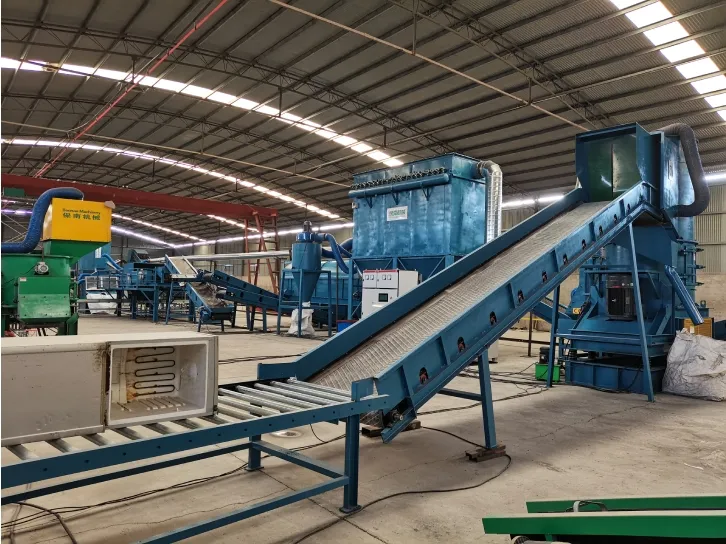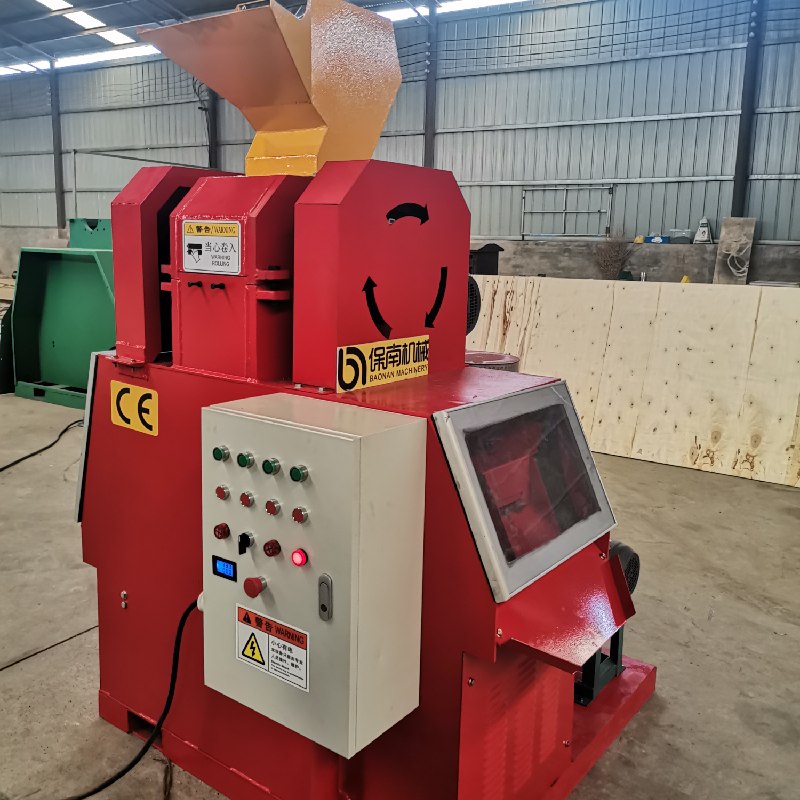Disposing of old television sets can be a challenging task, especially when considering the environmental impact and the regulations surrounding electronic waste. Herein, we explore expert insights, authoritative guidelines, and share trustworthy experiences to help you responsibly and effectively get rid of your obsolete TVs, while also shedding light on the importance of proper disposal methods.

Understanding the Importance of Proper Disposal
Television sets, particularly older models, contain hazardous materials such as lead, mercury, and cadmium. These substances can pose serious environmental threats if not disposed of correctly. Additionally, with the rapid advancement of technology, millions of TVs become obsolete each year, contributing to a growing e-waste crisis. Responsible disposal not only helps mitigate these environmental issues but also aligns with legal requirements in many regions, which mandate the safe handling of electronic waste.

Professional E-Waste Recycling Centers
One of the most effective ways to dispose of old TVs is by taking them to a certified e-waste recycling center. These centers follow stringent guidelines to ensure that electronic components are either safely recycled or disposed of in a way that minimizes environmental harm. It's essential to verify that the center is certified and complies with e-Stewards or R2 (Responsible Recycling) standards. By doing so, you ensure that your TV is handled by professionals who understand the complexities of electronic waste and are equipped to deal with them responsibly.
Municipal Waste Programs and Events
Many local governments have initiated e-waste collection programs that offer safe and convenient ways to dispose of old electronics. These programs may include curbside pickup on certain days or designated drop-off locations where residents can bring their unwanted TVs.
Some municipalities host periodic e-waste recycling events where you can bring your old television along with other electronic devices. These programs often partner with reputable recyclers to ensure proper handling of all collected items.
Retail Take-Back Programs
Several electronic retailers offer take-back programs, providing consumers with an easy solution for recycling their obsolete devices. Stores like Best Buy and Staples have implemented programs where customers can return their old TVs for recycling, often free of charge. These programs typically have certain eligibility criteria, such as size limitations or restrictions on the number of items you can drop off. By leveraging these retailer services, you can ensure that your TV is being processed through a trusted channel that adheres to industry best practices.
how do you get rid of old television sets
Charitable Donations and Resale Opportunities
If your television is still in working condition, consider donating it to a charitable organization or a second-hand store, where it can be repurposed for those in need. Many non-profits accept electronic donations, which can provide educational or entertainment resources for underserved communities. Additionally, platforms like Craigslist, Facebook Marketplace, or local community boards can be excellent avenues for selling or giving away working TVs. This approach not only prevents waste but also extends the device's lifespan, promoting sustainability.
Manufacturer Take-Back Services
TV manufacturers often have programs in place for recycling their products. Brands such as Sony, Samsung, and LG offer take-back services that allow customers to return old models directly to the manufacturer. These programs are designed to ensure that the televisions are recycled according to the brand's specifications, maintaining a high standard of environmental responsibility. Contacting the manufacturer's customer service or visiting their website can provide specific instructions on how to participate in these initiatives.
Considerations for Safe Transport and Handling
When preparing a TV for transport to a recycling or donation facility, safety should be a top priority. Older televisions, particularly CRT models, can be heavy and cumbersome to move, increasing the risk of injury or damage. Ensure that you have the appropriate tools, such as a dolly or hand truck, and the necessary help to move the TV safely. Moreover, wrapping the device in protective material can prevent accidental damage during transport, ensuring it arrives in a suitable condition for recycling or reuse.
Conclusion Embracing Responsible Practices
Disposing of old television sets entails more than merely discarding an outdated appliance; it involves a commitment to environmental stewardship and community responsibility. By opting for responsible disposal methods, such as utilizing certified recycling centers, participating in municipal programs, or supporting retail take-back initiatives, you contribute positively to the environment and help curb the growing e-waste problem. Furthermore, considering resale or donation options can further enhance the sustainability of your disposal efforts, demonstrating an all-rounded approach to managing electronic waste.



